Filter by
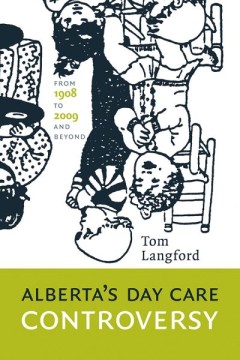
Alberta’s Day Care Controversy From 1908 to 2009 and Beyond
Day care in Alberta has had a remarkably durable history as a controversial issue. Since the late 1950s, disputes over day care programs, policies, and funding have been a recurring feature of political life in the province. Alberta’s Day Care Controversy traces the development of day care policies and programs in Alberta, with particular emphasis on policy decisions and program initiatives t…
- Edition
- -
- ISBN/ISSN
- 978-1-926836-02-7
- Collation
- -
- Series Title
- -
- Call Number
- 425 pages
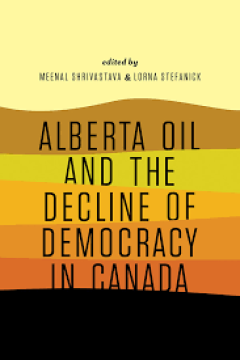
Alberta Oil and the Decline of Democracy in Canada
In probing the impact of Alberta’s powerful oil lobby on the health of democracy in the province, contributors to the volume engage with an ongoing discussion of the erosion of political liberalism in the West. In addition to examining energy policy and issues of government accountability in Alberta, they explore the ramifications of oil dependence in areas such as Aboriginal rights, environm…
- Edition
- -
- ISBN/ISSN
- 9781771990301
- Collation
- -
- Series Title
- -
- Call Number
- -
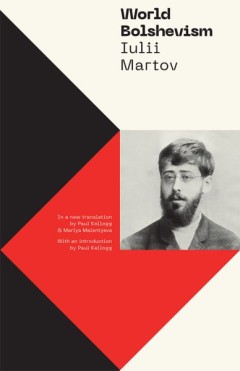
World Bolshevism
Following Martov’s untimely death in 1923, a Russian-language edition of one of his books, World Bolshevism, was published. But it was only in 2000, after decades of extreme censorship, that parts of the book were legally published in Russia. In English, this work has reached the public in pieces, often as a part of pamphlets with limited circulation. This edition, which includes an introduct…
- Edition
- -
- ISBN/ISSN
- 9781771992732.01
- Collation
- -
- Series Title
- -
- Call Number
- 194 pages
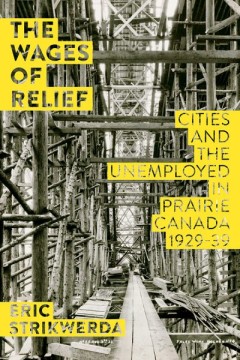
The Wages of Relief Cities and the Unemployed in Prairie Canada, 1929–39
Setting municipal relief administrations of the 1930s within a wider literature on welfare and urban poor relief, Strikwerda highlights the legacy on which relief policymakers relied in determining policy directions, as well as the experiences of the individuals and families who depended on relief for their survival. Focusing on three prairie cities—Edmonton, Saskatoon, and Winnipeg—Strikwe…
- Edition
- -
- ISBN/ISSN
- 978-1-927356-05-0
- Collation
- -
- Series Title
- Working Canadians: Books from the CCLH
- Call Number
- 333 pages
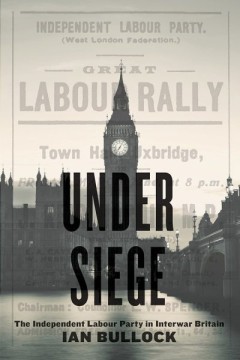
Under Siege The Independent Labour Party in Interwar Britain
Despite this reversal of fortunes, during the 1930s—years that witnessed the ascendancy of both Stalin and Hitler—the ILP demonstrated an unswerving commitment to democratic socialist thinking. Drawing extensively on the ILP’s Labour Leader and other contemporary left-wing newspapers, as well as on ILP publications and internal party documents, Bullock examines the debates and ideological…
- Edition
- -
- ISBN/ISSN
- 9781771991551.01
- Collation
- -
- Series Title
- -
- Call Number
- -

“Truth Behind Bars” Reflections on the Fate of the Russian Revolution
Paul Kellogg uses the story of Vorkuta as a frame with which to re-assess the Russian Revolution. In particular, he turns to the contributions of Iulii Martov, a contemporary of Lenin, and his analysis of the central role played in the revolution by a temporary class of peasants-in-uniform. Kellogg explores the persistence and creativity of workers’ resistance in even the darkest hours of aut…
- Edition
- -
- ISBN/ISSN
- 9781771992459.01
- Collation
- -
- Series Title
- -
- Call Number
- 6x9, 440 pages
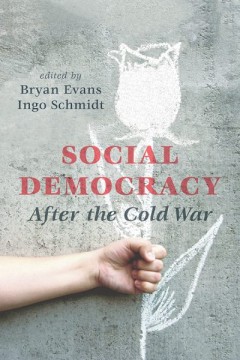
Social Democracy After the Cold War
Offering a comparative look at social democratic experience since the Cold War, the volume examines countries where social democracy has long been an influential political force—Sweden, Germany, Britain, and Australia—while also considering the history of Canada’s NDP and the emergence of New Left parties in Germany and the province of Québec. The case studies point to a social democracy…
- Edition
- -
- ISBN/ISSN
- 978-1-926836-87-4
- Collation
- -
- Series Title
- -
- Call Number
- 340 pages
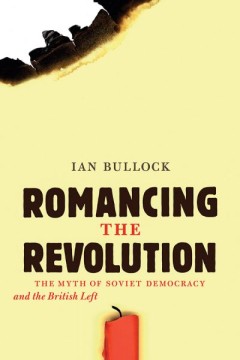
Romancing the Revolution The Myth of Soviet Democracy and the British Left
Romancing the Revolution uncovers the imprint of this myth on left-wing organizations and their publications, ranging from those that presented themselves as “British Bolsheviks”—the British Socialist party and The Call, the Socialist Labour party’s The Socialist, Sylvia Pankhurst’s Workers’ Dreadnought—to the much more equivocal Labour Leader and The New Statesmen.
- Edition
- -
- ISBN/ISSN
- 9781926836133
- Collation
- -
- Series Title
- -
- Call Number
- 438 pages

Romancing the Revolution The Myth of Soviet Democracy and the British Left
Romancing the Revolution uncovers the imprint of this myth on left-wing organizations and their publications, ranging from those that presented themselves as “British Bolsheviks”—the British Socialist party and The Call, the Socialist Labour party’s The Socialist, Sylvia Pankhurst’s Workers’ Dreadnought—to the much more equivocal Labour Leader and The New Statesmen.
- Edition
- -
- ISBN/ISSN
- 978-1-926836-13-3
- Collation
- -
- Series Title
- -
- Call Number
- -

Rocks in the Water, Rocks in the Sun A Memoir from the Heart of Haiti
In honest, reflective prose, Joegodson—now a father himself— allows us to walk in the ditches of Cité Soleil, to hide from the macoutes under the bed, to feel the ache of an empty stomach. But, most importantly, he provides an account of life in Haiti from a perspective that is rarely heard. Free of sentimentality and hackneyed clichés, his narrative explores the spirituality of Vodou, Ca…
- Edition
- -
- ISBN/ISSN
- 9781771990110.01
- Collation
- -
- Series Title
- Our Lives: Diary, Memoir, and Letters
- Call Number
- 390 pages
 Computer Science, Information & General Works
Computer Science, Information & General Works  Philosophy & Psychology
Philosophy & Psychology  Religion
Religion  Social Sciences
Social Sciences  Language
Language  Pure Science
Pure Science  Applied Sciences
Applied Sciences  Art & Recreation
Art & Recreation  Literature
Literature  History & Geography
History & Geography